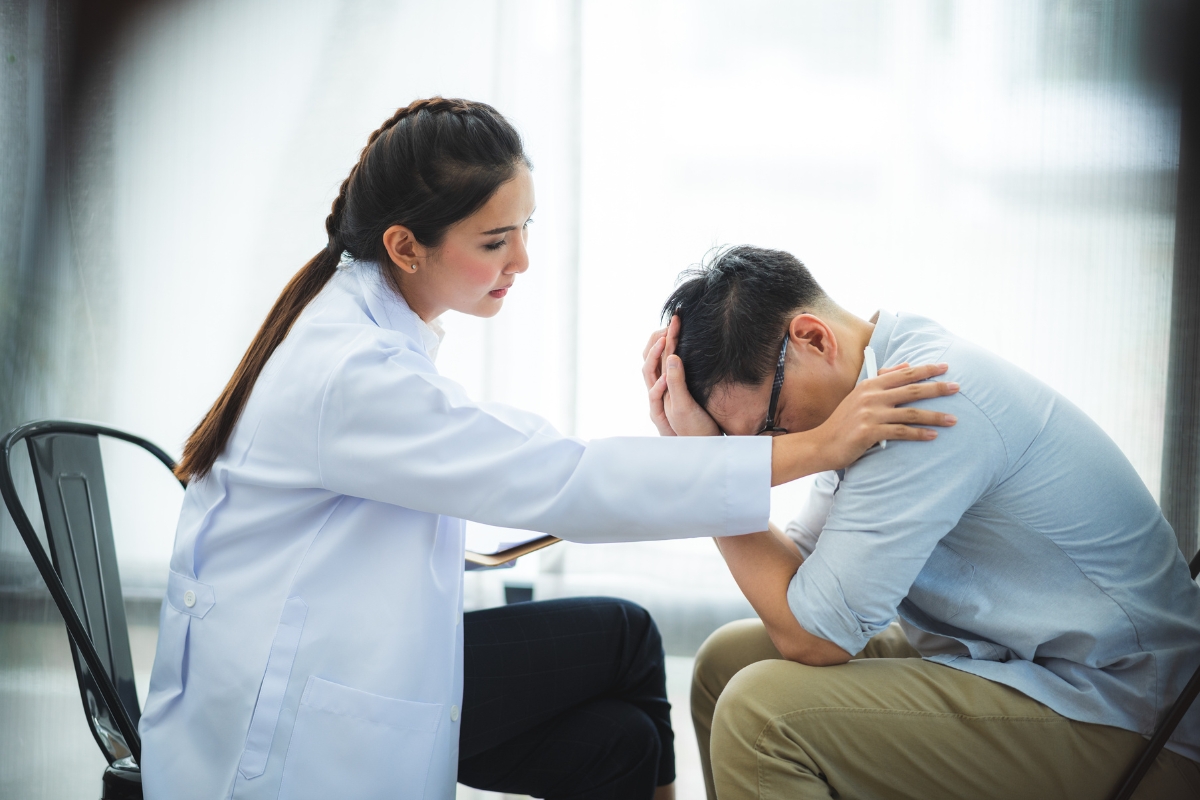How PTSD Manifests Differently in Men vs. Women: Exploring Unique Experiences in Round Rock

Post-Traumatic Stress Disorder (PTSD) affects millions of people across the United States, but its impact is far from uniform. Men and women experience PTSD in distinct ways, influenced by biological, psychological, and social factors. Understanding these differences is crucial for recognizing symptoms, seeking help, and finding effective treatment options like MeRT (Magnetic e-resonance Therapy) or TMS (Transcranial Magnetic Stimulation). This blog sheds light on how PTSD manifests differently in men and women, offering valuable insights for those looking to understand the condition better and find PTSD treatments tailored to their needs.
What is PTSD?
PTSD is a mental health condition triggered by traumatic events. It can develop after incidents such as physical violence, accidents, combat exposure, or natural disasters.
- Common symptoms include flashbacks, nightmares, heightened anxiety, and emotional numbness.
- The condition can interfere with daily life, affecting relationships, work, and overall well-being.
- Both men and women can develop PTSD, but how they experience it often varies significantly.
How Does PTSD Affect Men?
Men with PTSD often exhibit outward and behavioral symptoms.
- Aggression and Irritability: Men may express their distress through anger or irritability, often directed outward.
- Avoidance Behavior: Avoiding social situations or discussing emotions is common.
- Risk-Taking Tendencies: Engaging in risky behaviors like substance abuse or reckless driving can be a coping mechanism.
- Suppressed Emotions: Men may struggle to acknowledge or verbalize feelings of vulnerability or sadness.
How does PTSD affect women?
For women, PTSD symptoms are more internalized and often linked to emotional and psychological struggles.
- Heightened Anxiety: Women are more likely to feel chronic fear or worry related to the trauma.
- Depression: Feelings of hopelessness or sadness are more prevalent.
- Relational Struggles: Women might experience difficulties maintaining personal relationships due to emotional withdrawal.
- Health Problems: Physical manifestations, like headaches or gastrointestinal issues, are often reported.
Biological and Hormonal Factors
Biology plays a significant role in how PTSD manifests in men and women.
- Hormonal Influence: Women’s fluctuating hormones may intensify their emotional symptoms during certain phases of the menstrual cycle.
- Brain Structure: Research suggests that men and women process trauma differently due to structural differences in the brain, particularly in areas controlling emotion and memory.
- Stress Response: Men’s stress responses often involve a “fight or flight” reaction, while women are more likely to exhibit a “tend and befriend” approach.
Social and Cultural Influences
Societal expectations shape how men and women respond to PTSD.
- Stigma in Men: Cultural norms discourage men from seeking help, associating emotional struggles with weakness.
- Support Networks for Women: Women may have stronger support networks but face societal judgment for appearing “too emotional.”
- Different Triggers: While men often develop PTSD from combat or physical violence, women are more likely to experience it after sexual assault or domestic violence.
How MeRT and TMS Offer Hope for PTSD Patients?
Emerging therapies like MeRT and TMS can be groundbreaking PTSD treatments.
- How They Work:
- MeRT: A personalized therapy that uses magnetic resonance to improve brainwave activity.
- TMS: A non-invasive treatment stimulating brain areas involved in mood regulation.
- Benefits for PTSD:
- It helps reduce symptoms like anxiety, hypervigilance, and depression.
- Offers a drug-free alternative with minimal side effects.
When to Seek Help
Understanding when to seek PTSD treatments is vital for managing it effectively.
- Recognizing Symptoms: If flashbacks, nightmares, or emotional withdrawal interfere with daily life, professional help is essential.
- Tailored Treatments: Therapies like MeRT or TMS in Round Rock offer personalized care to address individual needs.
- Building a Support System: Having family and friends who understand PTSD’s impact can provide emotional relief.
PTSD’s effects differ for men and women, making tailored treatment essential. Solutions like MeRT and TMS bring hope for managing symptoms and improving quality of life. If you or a loved one struggles with PTSD, recognizing the signs and seeking help can be life-changing.
To learn more about MeRT and TMS therapies for PTSD, contact a local clinic in Round Rock and start your journey toward recovery today.


